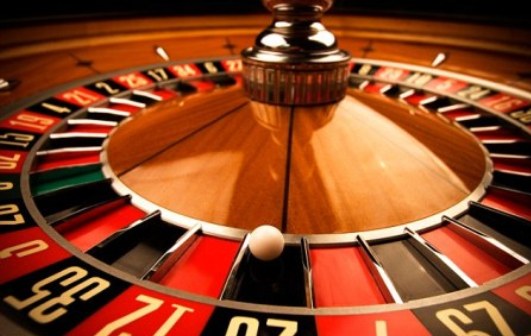Roulette —the name means "little wheel" in French- became the gambling game of choice in nineteenth-century France. Although originally associated with Monte Carlo, it is now played in casinos all around the world.
Roulette is the queen of all gambling games. We thrill to the spin and a chance of winning a small fortune with each turn of the wheel. With a practiced flick of the wrist, the skilled croupier sets in motion the spinning wheel and clicking ivory ball. In a swirl of red and black our bet's fate is decided – sometimes we win and sometimes we lose – yet we still continue to bet on the alluring spinning wheel.

The best daily bonuses on the internet
Our score:  (4.3 / 5)
(4.3 / 5)

Welcome Bonus
Our score:  (4.2 / 5)
(4.2 / 5)

Welcome Bonus
Our score:  (4.2 / 5)
(4.2 / 5)

Bonus Code: 400BONUS
Our score:  (4.2 / 5)
(4.2 / 5)

Bonus Code: 400BONUS
Our score:  (4.2 / 5)
(4.2 / 5)
The great nineteenth-century Russian novelist, Fyodor Dostoevski was an inveterate gambler. He begged and borrowed rubles from his acquaintances to gamble on roulette always hoping that the next spin would be his big win. It was almost as if this bearded genius were hypnotized by roulette and its accouterments – the colorful spinning wheel, the eccentric crowd of gamblers, and the celebrated directions of the croupier – Faites Vos Jeux, Messieurs! and as the wheel begins to slow down, Rien ne va plus! Roulette has an attraction that can be most addictive!
Spinning games show up in many early civilizations. Ancient Greeks and Romans played gambling games by spinning shields and chariot wheels. Picture a group of burly, battle-hardened gladiators, in an area especially cordoned off for these heroes of the arena, spinning a chariot wheel to determine who would be the next challenger in the ring.
These games of chance were not limited to the Mediterranean either. Early Eskimos enjoyed a primitive version of roulette. The direction of a hunting trip was sometimes determined by the direction of a spun arrow

In these days, Eskimo customs permitted an exchange of wives, and more than once the fate of the little woman was determined by a spin of the wheel. One story which has become a part of gambling lore is that of a young Eskimo gambler who had such a hot hand that he won seventeen wives in one game. It is not reported whether he considered this extraordinarily good luck or bad.
The origins of the modern version of the game are somewhat obscure. One story has the seventeenth-century French mathematician Blaise Pascal devising the game while he was in retreat in a monastery, working on the numbers theory.
Others believe that an old Chinese game whose object was to arrange 37 statuettes of animals into a symbolic square of "666" was the forerunner of roulette.
Hoca was an early version of roulette played in the seventeenth and eighteenth centuries in Germany, Austria, Hungary, and France. The French statesman Cardinal Mazarin proposed that hoca be used to replenish the depleted coffers of Louis XIV and envisioned hundreds of gaming tables spread about the kingdom. However, this scheme met with considerable government resistance, and after Mazarin's demise, the game was prohibited with death as the penalty for any practitioners!